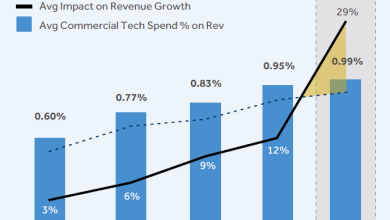
Cryptocurrencies, and the distributed ledger technology underpinning them, have divided the investment and wider financial communities. Are they visionary innovations offering transparent, decentralised models that will remake the industry? Or are they just expensive and unpredictable experiments that offer little to no real-world benefit? Either way, they have had a noticeable impact.
1. Investment potential
Crypto assets’ attraction is broadly twofold.
The first is corruption. For criminals, cryptocurrencies offer a way to transact business, launder illegal income, and evade taxes. Blacklisted regimes, such as North Korea and Iran, have used crypto to avoid sanctions.
The second is as a speculative asset, with the price surges and diversification potential enticing a variety of professional investors and hopeful retail traders. While many may be nursing losses (bitcoin has slumped 75% from its $68,800 November 2021 high), a Coinbase-sponsored survey found institutional investors continue to increase their cryptocurrency allocations. Asset tokenisation offers even more investment opportunities.
2. Value of trust and regulation
Blockchain-based crypto assets were designed to have an independent and decentralised transaction validation mechanism with no central authority or administrator, putting them outside of governmental/central bank/financial market infrastructure control.
“The root problem with conventional currencies is all the trust that’s required to make it work,” according to Bitcoin founder Satoshi Nakamoto in a New York Times interview. “The central bank must be trusted not to debase the currency, but the history of fiat currencies is full of breaches of that trust.”
Crypto volatility, concerns about hacking and fraud, and the collapse of the likes of TerraUSD/Luna and FTX have led to demands for more thorough regulation to bolster trust and protect investors in the sector.
3. AML/KYC and tax reporting
Cryptocurrency-enabled criminal activities, terrorism financing, and sanctions evasion have heightened the onus on rigorous multi-jurisdictional anti-money laundering and tax reporting infrastructures.
Government officials and tax authorities are anxious that crypto assets will undermine global tax transparency advances achieved through the Common Reporting Standard (CRS) and US Foreign Account Tax Compliance Act (FATCA), so new OECD and EU crypto asset reporting obligations are in the works too.
Automated risk profiling, source of funds checks, and sanctions list monitoring will provide essential controls. Beneficial owner screening able to handle complex, multi-level ownership structures to identify underlying owners has become increasingly important. Monitoring of real-time suspicious activity helps to detect money laundering risks and block suspicious activity and behaviour. Institutions also have to guard against the use of concealment techniques such as VPNs, proxies, mixers, or tumblers.
4. Financial transaction disintermediation
As BNY Mellon chief executive Robin Vince observed in the Financial Times recently, digital ledger representations of traditional assets can lead to improvements in the accuracy of record-keeping, easier handling of certain asset types such as real estate and loans and speedier, more efficient settlement.
The problem for traditional market participants is that the concept of peer-to-peer networks with no central servers, storage, authority, or administrator threatens to disintermediate them from existing transaction processes. Banks, service providers, and exchanges around the world have invested in blockchain initiatives in response as they seek to promote the value of permissioned networks, rather than the permissionless vision of the blockchain evangelists.
5. The long road to innovation
As the crypto market demonstrates, the road to successful innovation is riddled with failures. However, similar to the dotcom bubble or Britain’s Victorian-era railway boom before it, the strong will survive.
Only time will tell which crypto assets will endure, what value they will have and how big a part of investors’ allocation mix they will occupy. A recent ECB blog claimed that since Bitcoin appears unsuitable as a payment system or a form of investment, the financial industry should be wary of the long-term reputational damage of promoting Bitcoin investments. Yet, we believe cryptocurrency, in whatever form, is here for good. With it, financial institutions will need to maintain an innovative mindset if they are to cope with the opportunities and threats that come with it.



